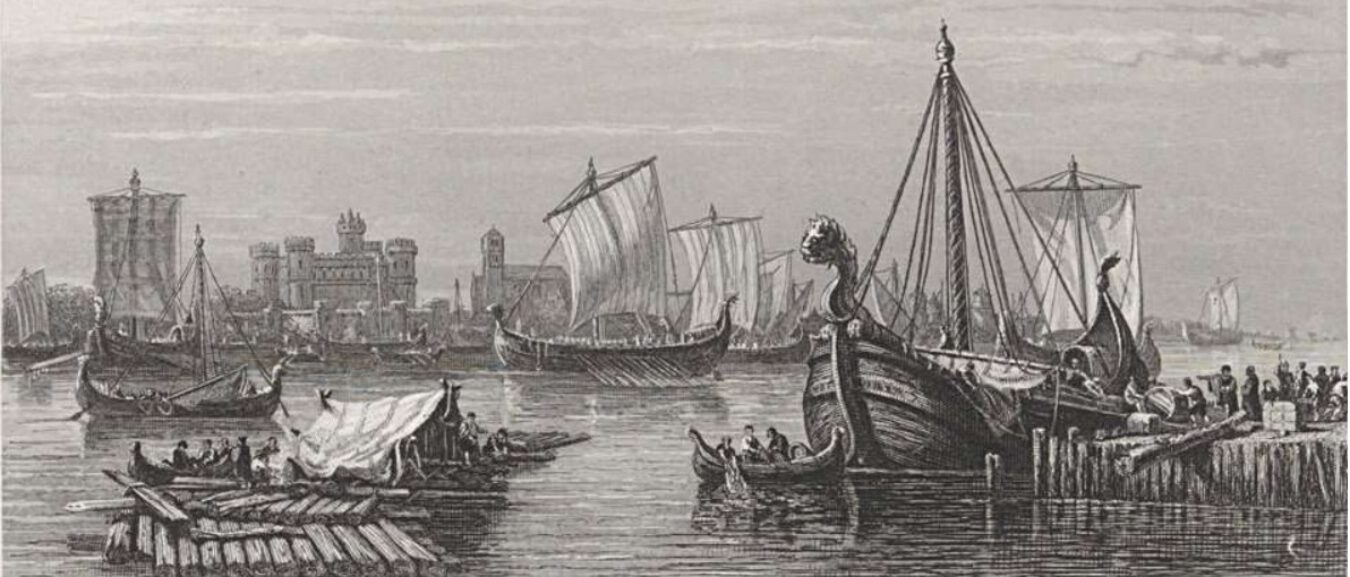Greek paganism, also known as Hellenic religion, was the polytheistic religion practiced by the ancient Greeks from around the 8th century BCE to the 4th century CE. It was a complex system of beliefs, rituals, and practices that varied over time and place, and which included many different gods and goddesses.
The Greeks believed that their gods and goddesses were anthropomorphic beings with human-like qualities, emotions, and personalities. These deities were believed to have control over various aspects of life, such as the weather, fertility, war, and love. Each deity had specific domains and areas of influence, and was often associated with particular symbols and animals.
Some of the most well-known Greek gods and goddesses include Zeus, the king of the gods and god of the sky; Hera, Zeus’s wife and goddess of marriage and childbirth; Athena, goddess of wisdom and warfare; Apollo, god of music, prophecy, and healing; Artemis, goddess of the hunt and childbirth; Demeter, goddess of agriculture and fertility; and Dionysus, god of wine and ecstasy.
Greek paganism was also marked by a complex system of rituals and practices, such as animal sacrifices, libations, and various festivals and celebrations. These practices were designed to honor the gods and to seek their favor and protection. The most important religious festival in ancient Greece was the Olympic Games, which were held every four years in honor of Zeus.
Overall, Greek paganism played a significant role in ancient Greek society and culture, influencing everything from politics and art to literature and philosophy. Although the religion declined with the rise of Christianity in the 4th century CE, it continues to have an enduring impact on Western culture and thought.


THE YELLOW COW
A HUMANIST/GREEN BOOK PERSECUTED BY EVANGELICALS IN BRAZIL
Dear friends, we are a HUMANIST NGO in Rio de Janeiro, named “Come Together,” whose work is to assist children in need of psychological guidance. We are freethinking humanists, pro-Hellenism, and environmentalists.
It is our plan to connect our NGO to International Humanist Organizations, but two hurdles have troubled our carrying out this goal: opposition and tough criticism from religious organizations, mainly Evangelicals, and a lack of books and works of art to display. Protestant Christians have burned our books in public squares.
Amazon Books has published literary works by the author we deem THE BEST HUMANIST FICTIONIST IN BRAZIL, Paul Costa Gavin. Part of the copyright of Paul’s book was transferred to our organization. PC Gavin’s novel we are authorized to trade is called THE YELLOW COW (Amazon Books.) It describes the true origin of Christianity–a man named Jesus Christ never existed–and denounces the many lies and astonishing violence the Christians have developed to turn their superstitious religion into the only one in Western Culture and destroy the whole Greco-Roman culture.
Therefore, we ask for your help. If you buy THE YELLOW COW, read it, and recommend it to your friends, you’ll be giving us the support we need to fulfill our major purpose.
Please go to the Amazon Books website, type Paul Costa Gavin or The Yellow Cow in the blank space, and read the synopsis of our book. You will also find this synopsis after our Director’s signature below. Thank you very much for your help.
Daniel Garcia Yunes (NGO Director, literary agent)
The Yellow Cow, best selling book, most popular at
https://amzn.to/3VTwZ9Y
The Yellow Cow
(Synopsis)
The Yellow Cow is a tragicomic humanist novel about a young man from Ireland (Eire) named Llywelyn O’Dweyer, whose purpose in life is to acquire transcendent wisdom. Living in the early years of Christianity’s existence, it is easy for him to observe that this religion is just a copy of many others that had existed in the Roman Empire for centuries. However, the destruction of the Greco-Latin culture, which the Galileans had been savagely perpetuating all around the Mediterranean Sea, is only a reference for the young Irishman because the Greek culture had never disembarked in Ireland, so the Christians were not interested in ravaging the culture of that country as they had been doing in the rest of the territory of the Roman Empire. The young Irishman elects the discovery of the true origins of Christianity as an important part of his search for Truth. Nevertheless, the Christian patriarchs had already taken over the political power in Rome and forbade lay researchers to consult any books or references regarding the true origins of Christianity. Just as the lad is about to give up his research, he has a series of dreams that tell him when, where, why, and how Christianity was invented, and by whom this religion had been contrived, for he knows that Jesus Christ–as well as all the characters connected with his life–never existed as a historical human being. It’s all plagiarized legend from earlier religions. Every day Llywelyn wakes up just before daybreak and takes note of the dreams he had that night. As time goes on, he gradually organizes his dreams until he feels it is possible to make them into four stories. These dreams tell him all about the scheme set up by the big bosses of Christianity to enslave the human mind and–in appearance, forever, as the Christians believe– to stop the evolution of humankind. Llywelyn’s approach is not only historical but psychological as well, as he detects all the ruses that the bigwigs of Christianity were using to turn human beings into mental and sensitive eunuchs. The final chapter is funny because in this part the author gives up the previous tragicomic style and prefers picaresque humor. In this concluding chapter, when Llywelyn is living with Sophia of Mytilene, he finds out who really founded the Christian religion. Readers will be surprised as to who, and why Christianity was invented.
Keywords: humanists, freethinkers, agnostics, secularists, atheists, skeptics, non-religious, religion-free, reason, critical thinking.
email: danielyunes2023@gmail.com /// paulcostagavin@gmail.com)
The Yellow Cow, best selling book, most popular at
https://amzn.to/3VTwZ9Y